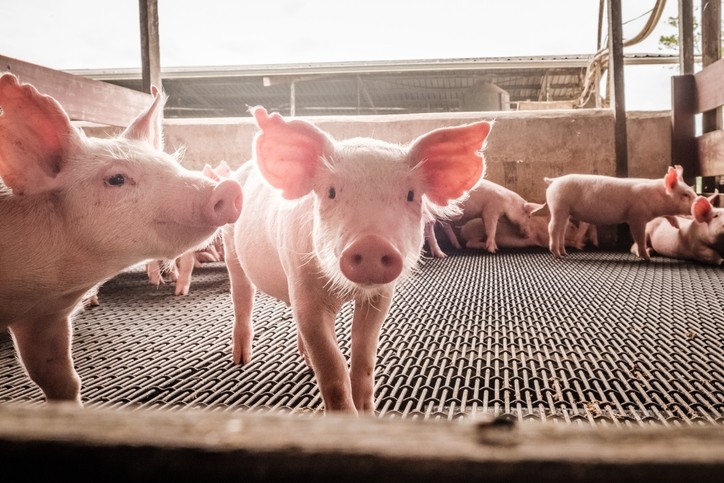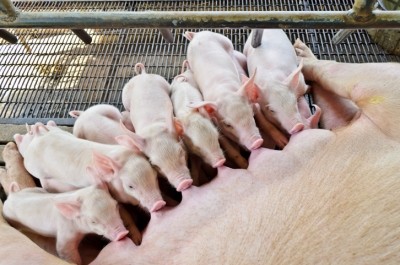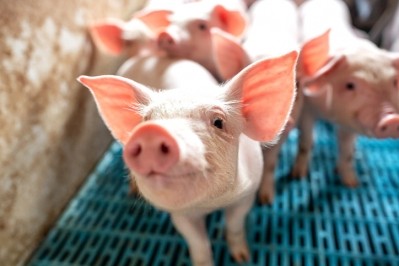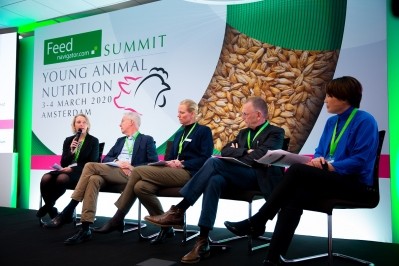Is particle size important for the diets of young pigs?

Particle size refers to the average mean diameter of individual particles of feed, or simply ‘the fineness of grind’ of the feed. Particle size can be determined by passing the feedstuff through a series of sieves with progressively smaller openings.
Fine grinding is commonly used to reduce particle size to increase animal performance, says Molist.
“A reduced particle size will increase nutrient digestibility by increasing the relative surface area of dietary particles exposed to enzymatic digestion in the gastrointestinal tract, thereby increasing nutrient digestion and absorption.
"On the other hand, the particle size of the diet will have also an impact the stomach pH, passage rate or microbial composition in the gut. Therefore. if we want to improve the performance of piglets, growing pigs and sows, and have a positive impact on their health and welfare, we need to better understand what the optimum particle size for swine diets is,” he noted.
Nutrient digestibility
At FeedNavigator’s conference, he will highlight how:
- Feed processing improves nutrient digestibility in swine
- Feed processing will affect nutrient and physicochemical characteristics of diets
- Feed structure will have a positive effect on the stomach and gut health in swine
More studies, he stresses, are required, however, in order to fully understand how to monitor the effects of feed processing on performance, health and welfare in swine.
Register to attend our Young Animal Nutrition Summit 2020 (YAN20) in Amsterdam. Check out the other speakers at YAN20 here.
Francesc Molist, veterinarian and nutritionist, joined Schothorst Feed Research as a researcher and consultant in 2011. Since 2017, he has been leading the research group as R&D manager.
Schothorst Feed Research provides consulting services animal nutrition in more than 22 countries, representing a total of 9% of the world production of feed.










